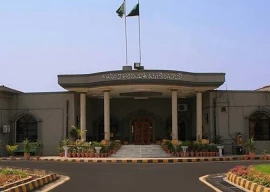
This was revealed in an audit of the Expanded Programme on Immunisation (EPI) by the Auditor General of Pakistan (AGP). The AGP’s report was submitted to the Parliament recently.
The rotavirus vaccine helps prevent diarrhoea among children under the age of five years. Delays in its introduction potentially caused deaths of millions of children, the audit says.
Rotavirus diarrhoea is one of the greatest killers of children in the country. Approximately 565,000 children under the age of five die of diarrhoea in the country every year, the fourth highest rate of child mortality in the world.
Vaccines offer the best solution to prevent rotavirus from killing and debilitating Pakistan’s children.
The Audit Report 2016-17 claims that “2.26 million children have died over the last four years from rotavirus diarrhoea owing of non-introduction of the vaccine. And, the EPI failed to avoid the deaths of millions of children due to non-availability of the vaccine”.
The report recommends fixing responsibility for the deaths.
The report by the financial watchdog further claims that EPI’s management was supposed to introduce the vaccine after approval of a PC-I in 2011 but no concrete step in that regards was taken for years. On being asked, the EPI management explained that the vaccine was costly and bulky and that it was not possible to introduce it without making proper arrangements.

Moreover, the EPI maintained that there are certain requirements such as funding through co-financing with Global Alliance for Vaccines and Immunisation (GAVI), and cold chain capacity for storing vaccines.
All four provinces and the two regions need to agree on funding for the co-financing share as GAVI entertains only national applications, an EPI official explained. In this regard, a national application was submitted to the GAVI for co-financing which was approved by the independent review committee.
Dr Saqlain Ahmad Gilani, the national manager for EPI, explained that when the plan was in PC-I, the provinces did not have storage capacity for vaccines.
The storage capacity has been developed since. Moreover, Dr Gilani explained that GAVI had raised some objections over the use of vaccines in remote areas of Balochistan and other provinces.
After sometime GAVI was asked to prepare the vaccine according to local environmental conditions.
The EPI official further maintained that the vaccine was not freely available in the market and only GAVI supplies it to developing countries.
“There were some crucial arrangement issues and it was important to have a system in place before its introduction,” he said.
“The issues were explained to the audit officials but they could not understand management problems. The vaccine was introduced in six districts of Punjab this January and is being scaled to other parts [of the province],” he added, noting that by September and October it would be introduced across the country.
Published in The Express Tribune, August 30th, 2017.

1725612926-0/Tribune-Pic-(8)1725612926-0-165x106.webp)








1725254039-0/Untitled-design-(24)1725254039-0-270x192.webp)






COMMENTS
Comments are moderated and generally will be posted if they are on-topic and not abusive.
For more information, please see our Comments FAQ